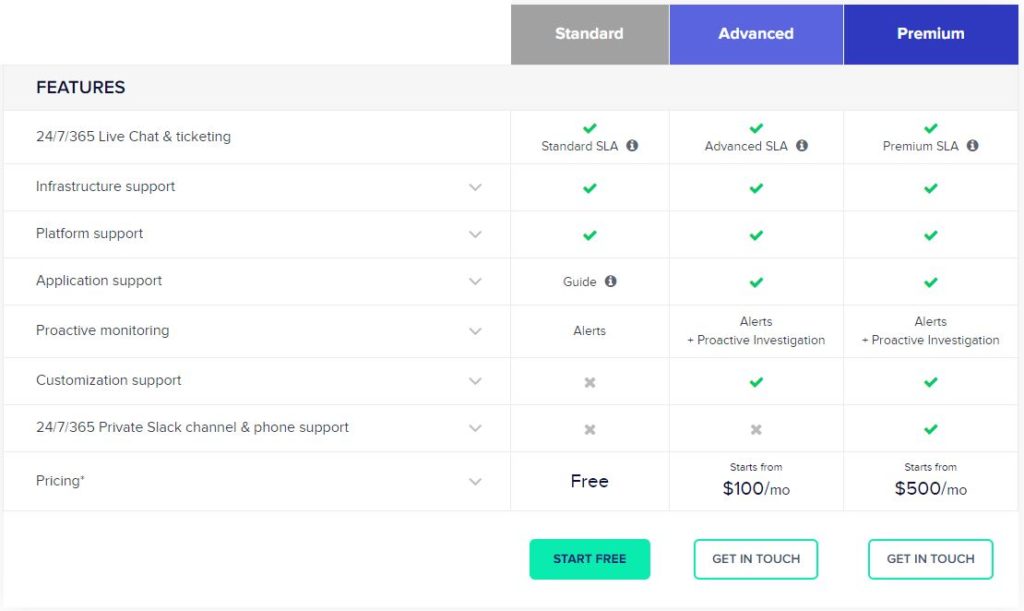Maybe you want to become a business owner or out of curiosity you want to know how web hosting companies make money
Websites serve as the digital storefronts for businesses, personal brands, and creative endeavors. Behind every website is a web hosting company that ensures these sites remain accessible around the clock.
There are 9 common ways that web hosting companies make money with, they are:
- 1. Subscription and Renewal Fees
- 2. Domain Registration and Renewal Fees
- 3. Add-on Services and Upselling
- 4. Website Builders and Design Services
- 5. Managed Services
- 6. Support and Consultation Services
- 7. Reseller Hosting
- 8. Affiliate Marketing
- 9. Advertising
1. Subscription and Renewal Fees
One of the primary revenue streams for web hosting companies comes from subscription fees associated with their hosting plans. These plans are structured to present a range of needs, from individuals launching personal websites or blogs to large enterprises requiring robust server capabilities.

Here’s how web hosting companies capitalize on this model:
- Tiered Pricing: Most hosting providers offer multiple tiers of service, each with different pricing, features, and resources. This allows customers to select a plan that best fits their needs and budget. For instance, a basic plan might offer limited bandwidth and storage space suitable for a small website, while premium plans might include high-performance servers, enhanced security features, and increased bandwidth.
- Renewal Fees: Hosting plans are billed on a recurring basis—monthly, annually, or biennially. Customers often enjoy lower rates when they commit to longer terms, which also benefits hosting companies by extending the customer lifecycle.
- Scalability: As websites grow, they may require more resources or higher specifications to handle increased traffic and data. Hosting companies make scaling up resources easy and profitable, as moving to a higher plan or adding specific resources incurs additional fees.
- Add-on Services: Many web hosting providers boost their basic hosting revenue by offering add-ons like email hosting, backup services, and more security. These extras enhance user convenience and security but come with an additional cost, increasing the average revenue per user.
2. Domain Registration and Renewal Fees
Another significant source of revenue for web hosting companies is through domain registration and renewal fees. Every website requires a domain name, which serves as its unique address on the internet.

Most shared hosting companies offer domain registrars, or partner with existing registrars, to facilitate the purchase and management of domain names. Here’s how this aspect contributes to their revenue:
- Initial Registration: Web hosting companies charge a fee for registering a new domain. This fee varies depending on the domain’s top-level domain (TLD), such as .com, .org, or .net, and more specialized ones like .tech or .design. Some hosting providers offer a free domain registration as part of their hosting package to attract new customers, but this is only free for the first year.
- Renewal Fees: Domain names are registered for a specific period, usually ranging from one to ten years. To retain the domain name, the owner must pay a renewal fee at the end of this period.
- Transfer Fees: If a domain owner decides to move their domain to a different registrar, the new registrar may charge a transfer fee. This adds to the overall income from domain-related services.
- Privacy Protection: Many customers opt for privacy protection services, which hide their personal information from the public domain registration database. Many hosting companies offer privacy protection for free. However, others charge an additional fee for this service.
- Expired Domains: Some hosting companies also profit from expired domains. If a domain is not renewed, it can go back on the market, and maybe auctioned off to the highest bidder.
3. Add-on Services and Upselling
Web hosting companies increase their profitability through add-on services and upselling. This is by offering additional products that complement their hosting plans, this can add more money to their pockets.

Here’s how they execute these strategies:
- Add-on Services: Beyond basic hosting, there are a variety of additional add-ons and services that customers can purchase to get more features to their websites such as SSL certificates for security, automated website backups, advanced performance optimization, dedicated IP addresses, email hosting, and more. Each of these services adds an extra layer of functionality and security to a website, and they come with an additional cost, boosting the provider’s revenue.
- Upselling Higher Plans: Web hosting providers are adept at upselling their customers to higher-tier plans. They monitor the usage and needs of their clients, and when a website grows or needs more server resources, they suggest upgrades to more powerful hosting solutions. This might include moving from one shared hosting to another bigger or from shared hosting to virtual private servers (VPS) or from VPS to dedicated servers.
- Professional Services: Some web hosting companies offer professional services such as web design and technical support. These are highly customized and can command a significant fee, contributing further to the revenue streams of the hosting company.
4. Website Builders and Design Services
Web hosting companies can expand their offerings by providing website builders and professional design services, addressing a crucial need for businesses and individuals looking to establish their online presence. These tools and services are designed to make website creation accessible to everyone, regardless of their technical expertise, and they represent a valuable revenue stream for hosting providers.

Here’s how they capitalize on these services:
- Website Builders: Many web hosting companies offer proprietary website builders as part of their hosting packages. These builders are drag-and-drop interfaces that allow users to easily create and customize their websites without any coding knowledge. This can attract a broader audience, including small business owners, bloggers, and non-tech-savvy users who might be intimidated by the prospect of website creation.
- Templates and Themes: Alongside website builders, some hosting providers offer a range of templates and themes that users can choose from. These templates are designed to be visually appealing and optimized for various purposes and industries.
- Professional Design Services: For clients who prefer a unique website to match their specific needs or who require more sophisticated design elements, web hosting companies can provide professional design services. This can include custom graphic design, user interface and user experience design, and full website development. These services are more expensive than using standard website builders but offer a higher degree of customization and professional quality.
5. Managed Services
Managed services represent a significant revenue generator for web hosting companies, especially among businesses and individuals who seek hassle-free operations for their online presence.
Managed services offer a lucrative avenue for web hosting companies to not just increase their revenue but also build long-term relationships with their clients by providing them with essential, ongoing support and services. This segment underscores a commitment to quality and customer satisfaction, which are critical in the competitive web hosting market.

6. Support and Consultation Services
Premium support and consultation services are vital components in the revenue models of many web hosting companies. These services are designed to provide better assistance, faster response times, and deeper technical guidance, which are valuable for managing complex websites or resolving critical issues.

Here’s how these services contribute to the financial health of web hosting companies:
- Premium Support Plans: Many web hosting companies offer tiered support plans, with premium options providing benefits such as 24/7 access to support, shorter response times, and direct access to more experienced technicians or account managers. Customers who opt for these plans pay a higher fee but gain the reassurance that they can get help whenever needed, especially during critical situations.
- Technical Consultation: Consultation services where experts provide advice on how to optimize website performance, improve security, or scale resources effectively.
- Custom Solutions: For clients with specialized needs, web hosting companies can provide custom solutions which may include unique configurations, specialized hardware, or advanced software setups. These services are billed at a premium and require ongoing support to maintain, thereby generating additional recurring revenue.
- Training Services: Some web hosting companies extend their service offerings to include training for their clients’ teams. This can cover topics like website management, cybersecurity best practices, and the use of specific technologies or tools provided by the host.
- Proactive Monitoring and Management: Premium support packages may also include proactive monitoring and management of clients’ hosting environments. This means the hosting provider actively checks for and addresses issues like potential security threats, software needing updates, or performance bottlenecks before they affect the client’s website. This proactive approach can be an upsell feature, appealing especially to business clients who cannot afford any downtime.
7. Reseller Hosting
Reseller hosting is a unique and profitable business model for web hosting companies, allowing them to generate revenue by leasing out their server space and bandwidth to third parties who then sell this hosting to their own customers.
It’s an attractive option for entrepreneurs, small to medium-sized businesses, and agencies looking to expand their services without the overhead of managing their own data centers.
8. Affiliate Marketing
Affiliate marketing is a powerful tool for web hosting companies to expand their reach and drive sales through partnerships with affiliates who promote their services. This performance-based marketing strategy effectively outsources part of the sales process to third parties, who receive a commission for every customer they refer.
Affiliate marketing allows web hosting companies to harness the networks of individuals and businesses that align with their target markets, converting their reach into a direct revenue stream. This model not only drives sales but also complements other marketing strategies by boosting brand visibility, market penetration, and SEO by getting links from authoritative websites.
9. Advertising
Some web hosting companies also generate revenue through advertising, both on their own platforms and by offering advertising services to their hosted websites. This approach coverts the web traffic that hosting providers and their customers attract to revenue.
Here’s how advertising plays a role in the revenue streams of some web hosting companies:
- Advertising on Hosting Platforms: Many web hosting companies have significant traffic to their own websites, where potential customers research and compare hosting plans. By placing ads on these platforms, whether they be for their own additional services or for third-party products that complement their offerings (like web development tools or software solutions), hosting providers can capitalize on their existing web traffic.
- Sponsored Content and Promotions: Hosting companies can also create sponsored content or promotional deals in partnership with other tech companies. For example, a hosting provider might feature a particular software or plugin on their blog and receive compensation for any resulting sales or sign-ups, utilizing their credibility and audience reach to market products.
- Email Marketing: Web hosting companies often have extensive mailing lists composed of current and prospective customers. Advertising through email newsletters allows them to promote third-party services or products, creating another avenue for ad-based revenue.
- Affiliate Products: Hosting companies can also generate revenue by advertising affiliate products. For instance, recommending a specific content management system or e-commerce platform on their user dashboard or during the sign-up process. If a user signs up for these services through the hosting provider’s referral, the provider earns a commission.
Conclusion
Web hosting companies generate revenue through a variety of methods. The primary source is subscription fees for hosting packages, which cover everything from basic shared hosting to more sophisticated options like dedicated servers and managed hosting.
These companies also offer add-on services such as domain registration, SSL certificates, and enhanced security features, which provide additional income.
Beyond direct sales, some engage in advertising and affiliate marketing, earning commissions by recommending other products and services. This combination allows web hosting companies to support their infrastructure and deliver comprehensive web services to their customers.






